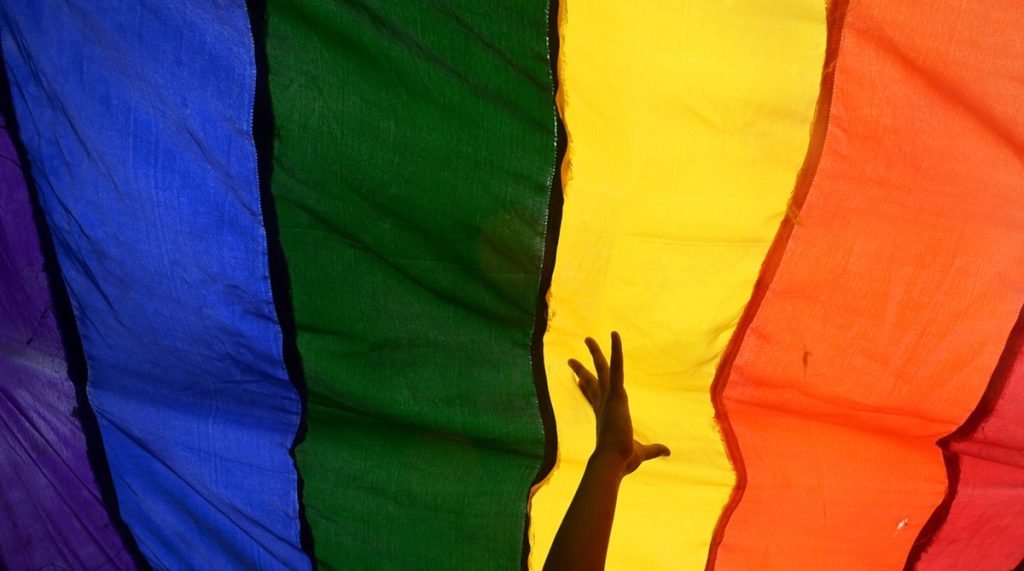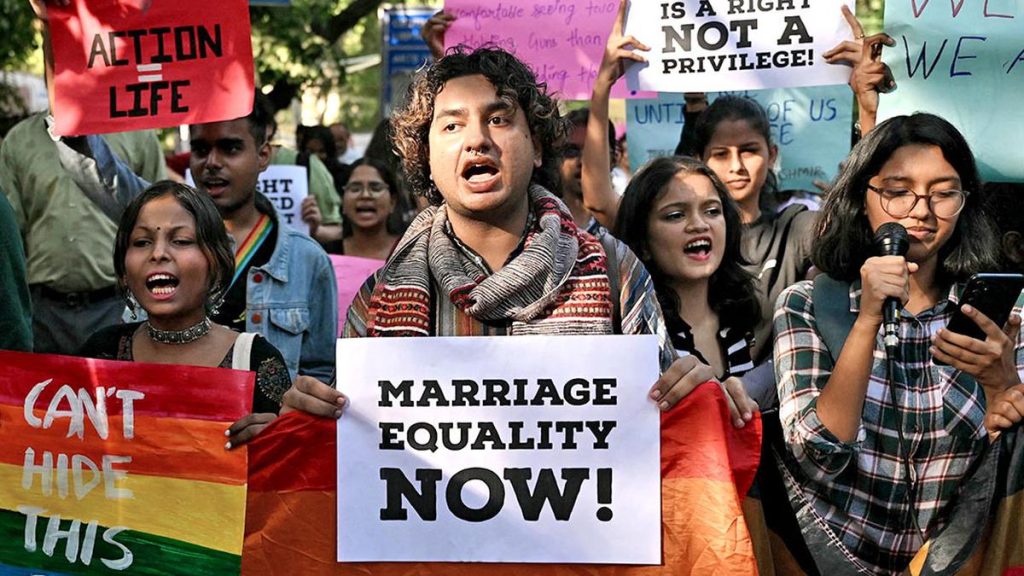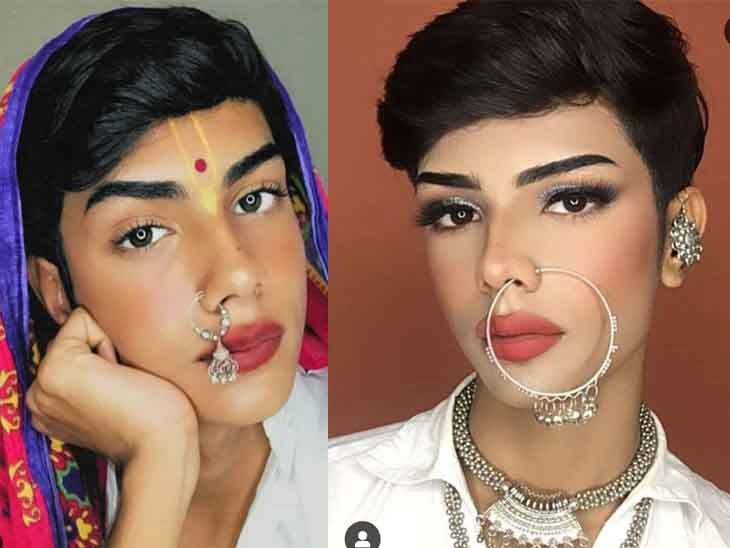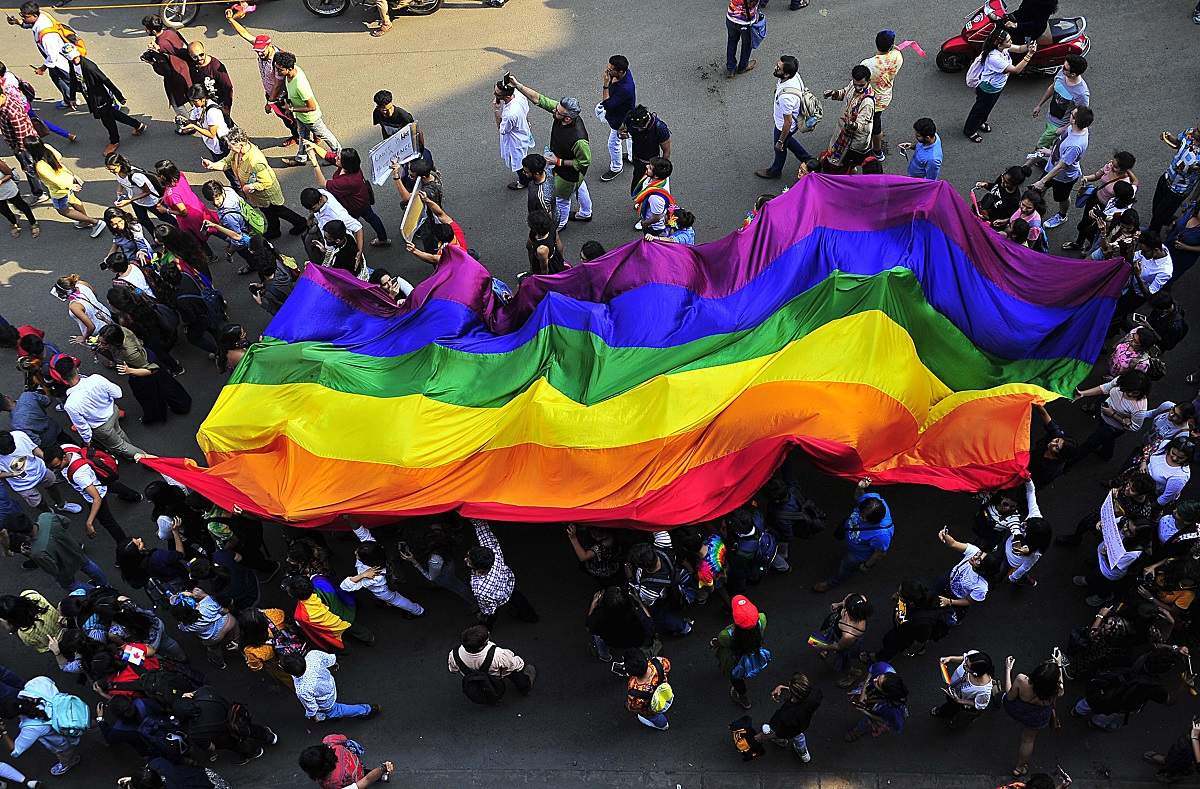In a historic judgment, a bench of five Supreme Court of India judges (back then) – Dipak Misra, Indu Malhotra, DY Chandrachud, AM Khanwilkar, and Rohinton Nariman – delivered a verdict that decriminalised homosexuality in India in 2018, revoking Section 377 of the Indian Penal Code (IPC) by calling it “irrational and arbitrary.” The statements of the verdict were loud and clear: History owes the LGBT community an apology for their sufferings. Bodily autonomy is individualistic. Expression of intimacy is part of the right to privacy.
As the LGBTQA+ community in India – possibly 104 million individuals or eight per cent of the total Indian population – embarks to “celebrate” the sixth year of this legal landmark, it is important to introspect on what has happened over the years. In 2023, the pioneer of UTH-United – largely known for transgender healthcare – Dr. Sakshi Mamgain, told NDTV that though people of the LGBTQIA+ community are more “accepted” than ever, however, they endure enormous struggle based on their sexual orientation and revelation of gender, especially from family members and educational institutions like school. She further stated that this form of internalised homophobia – faced by their peers or kin – has in the past led to severe mental health issues.
A report published by NEXTIAS in July 2022 claimed LGBTQIA+ people are 1.75 times more likely to get diagnosed with mental health issues such as anxiety and depression than the rest of the heterosexual community. It also said transgenders are at 2.4 times higher risk to endure symptoms of similar mental health concerns.
Discrimination and disparity in healthcare
There is a lot of data that proves prejudice and discrimination against the LGBTQA+ community are pervasive in the Indian healthcare system. Among the collected data, an important survey managed by the National Legal Services Authority (NALSA) discovered that 27 per cent of transgender people were divested from healthcare facilities citing their gender identity.

Furthermore, a research paper by experts journaled in Sexual and Reproductive Health Matters found that inadequate training, lack of understanding of gender inclusivity and general awareness of health-related concerns of the LGBTQIA+ community at Indian hospitals leave a “perceived” notion of medical administrators, treating the community mentioned above as “homogenous.” Several patients from the community, in the published report, claimed to endure verbal slurs by medical officials.
“When I went to a physician for cough and cold, he was shocked by knowing that I have a beard and a vagina… He forced me to show my private parts and even tried to register me in a clinical trial. But I asked him is cough and cold treated through vagina?” These words came from a transgender man, who in the report, was going through gender hormonal therapy.
Further data reveals the concerns are not just related to mental health issues. According to a report published by The Logical Indian, the community is also largely afflicted by HIV/AIDS cases. Similar research said HIV cases are estimated to be 30 times higher in Indian transgender women compared to the other population. A transgender woman told “aidsmap” that often medics, medical officials and health-related services are structured as per the gender binary, which results in the debarring of gender-inclusivity. Nonetheless, the person said HIV departments are “less discriminatory.”
In 2019, Minister of Social Justice and Empowerment and BJP leader Thawar Chand Gehlot introduced an act in the Lok Sabha that catered to the welfare and inclusivity of the transgender community – the Transgender Persons (Protection of Rights) Act of 2019. The act blatantly prohibits any kind of unfair treatment, discrimination/prejudice against the transgender community in educational institutions, jobs and medical services. However, the data shows that a lot has stayed the same over the last few years.
Same-sex marriage in India, still a distant dream
In October 2023, the Indian Supreme Court unanimously declined to pass legal recognition for same-sex marriages in the country offering “lip services” to the rights of non-heterosexual couples, saying only the “Union of India” and state legislatures can permit such rights. It confined the ruling to the Special Marriage Act (SMA), 1954 and stated that the Apex Court would not manage the Hindu Marriage Act. “The court, in the exercise of the power of judicial review, must steer clear of matters, particularly those impinging on policy, which fall in the legislative domain,” said the Supreme Court.

A report by queerbeat states that in over 70+ years of independence, the Apex Court has never interceded in critical family laws to repeat invidious. Additionally, In its verdict, the court also claimed that non-heterosexual couples (queer couples per se) can not be allowed the right to adopt a child collectively.
The ruling was the response to a petition filed by LGBTQ activists arguing against the SMA 1954, claiming it to be discriminatory as it excludes non-heterosexual couples and takes away the right of legal marital status from queer couples, thereby making them inferior in society. According to a survey by Pew Research Center, before the announcement of the Supreme Court’s verdict, 53 per cent of Indian adults said same-sex marriage should be legal in India.
Rampant attacks of cyberbullying in India
In November 2023, a 16-year-old queer makeup artist from Ujjain City, Madhya Pradesh, unfortunately, took away his life after he received extremely derogatory comments – homophonic slurs – and rape threats for an Instagram post that showed him donning a sari and jewellery on the occasion of Diwali festival. The young queer artist was a social media influencer who used to make content on Instagram mainly on make-up and beauty. He had as many as 15,000 followers on Instagram, was overwhelmed by the toxic/hate comments received on social media and succumbed to the hatred he very unfortunately received.

Subsequently, according to a report by the Times of India, the MP police took over the the young artist’s smartphone to investigate the online verbal abuse on platforms like Instagram, Facebook and WhatsApp. However, the extremely tragic incident has left a strong message for the young Indian queer community: the LGBTQA+ youth is not safe in the world of the Internet. The hatred does not stop there. There were more encounters of online homophobia after the teen’s tragic death.
According to a report by the South China Morning Post, a Bombay-based makeup content creator on Instagram, who identifies as gay, said he posted a video to offer tribute to his fellow (deceased) community member as a way to partake in the healing process and reminisce the young one. However, the Internet blasted him with irrational hate comments in return. “People were asking when I am dying and telling me to die in the [Instagram] comments. How can you wish that for someone?” he told South China Morning Post.
As per a social media survey index, GLAAD – the globe’s biggest LGBTQ media advocacy firm – claimed that online platforms such as Facebook, Instagram, TikTok, YouTube and Twitter have persistently failed to guarantee the protection of LGBTQ Internet users from online hate speech. In its survey, it said these social media platforms do not guarantee any safe policies to safeguard non-binary, transgender and gender-neutral people on the Internet.
The right to love is an innate right
The right to love – love yourself – and anyone else, irrespective of gender identity, or sexual orientation – is an innate right, it is not a pre-requisite demand. The jurisdiction of India fails to recognise that, and even after six years of revocation of British-raj Indian penal code 377, there is a lot to do for the Indian LGBTQA+ community. Because “we’re not just statistics; we’re citizens with dreams and aspirations,” said a queer artist from Delhi.




